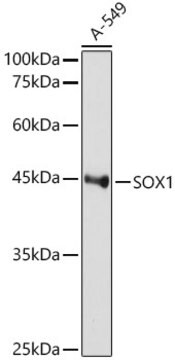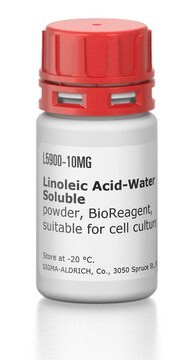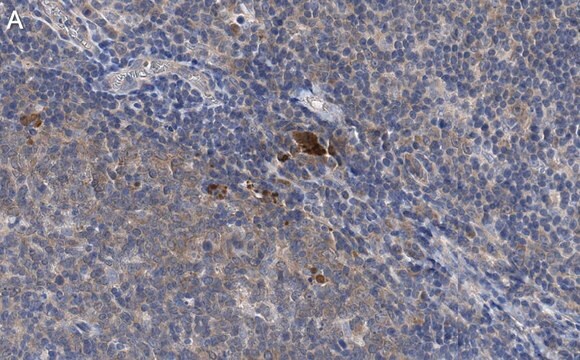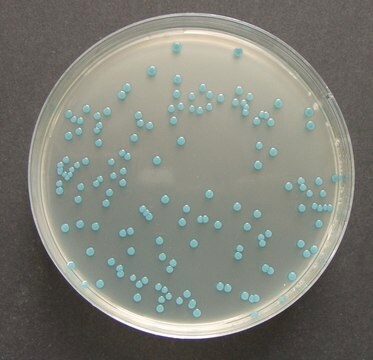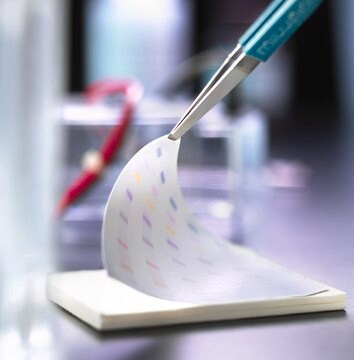07-1673
Anti-SOX1 Antibody
from rabbit, purified by affinity chromatography
Sinónimos:
SRY (sex determining region Y)-box 1, SRY-related HMG-box gene 1
About This Item
Productos recomendados
biological source
rabbit
Quality Level
antibody form
affinity isolated antibody
antibody product type
primary antibodies
clone
polyclonal
purified by
affinity chromatography
species reactivity
human
species reactivity (predicted by homology)
mouse
technique(s)
immunohistochemistry: suitable (paraffin)
NCBI accession no.
UniProt accession no.
shipped in
wet ice
target post-translational modification
unmodified
Gene Information
human ... SOX1(6656) , SRY(6736)
General description
Specificity
Immunogen
Application
Epigenetics & Nuclear Function
Transcription Factors
Quality
Immunohistochemistry(paraffin):
A 1:300 dilution of this antibody was used to detect SOX1 in human epidermis.
Physical form
Storage and Stability
To reconstitute the antibody, centrifuge the antibody at a moderate speed (5,000 rpm) for 5 minutes. Carefully remove the ammonium sulfate/PBS buffer solution and discard; 10 μL of residual ammonium sulfate solution will not affect the re-suspension of the antibody. Do not let the protein pellet dry, as severe loss of antibody reactivity can occur. Re-suspend the antibody pellet in 100L either standard PBS or TBS (pH 7.3-7.5). DO NOT VORTEX. Mix by gentle stirring with a wide pipet tip or gentle finger-tapping. Let the precipitated antibody rehydrate for 1 hour at 25°C prior to use. Small particles of precipitated antibody that fail to re-suspend are normal. Vials are overfilled to compensate for any losses.
Disclaimer
¿No encuentra el producto adecuado?
Pruebe nuestro Herramienta de selección de productos.
Storage Class
12 - Non Combustible Liquids
wgk_germany
WGK 2
flash_point_f
Not applicable
flash_point_c
Not applicable
Certificados de análisis (COA)
Busque Certificados de análisis (COA) introduciendo el número de lote del producto. Los números de lote se encuentran en la etiqueta del producto después de las palabras «Lot» o «Batch»
¿Ya tiene este producto?
Encuentre la documentación para los productos que ha comprado recientemente en la Biblioteca de documentos.
Nuestro equipo de científicos tiene experiencia en todas las áreas de investigación: Ciencias de la vida, Ciencia de los materiales, Síntesis química, Cromatografía, Analítica y muchas otras.
Póngase en contacto con el Servicio técnico
